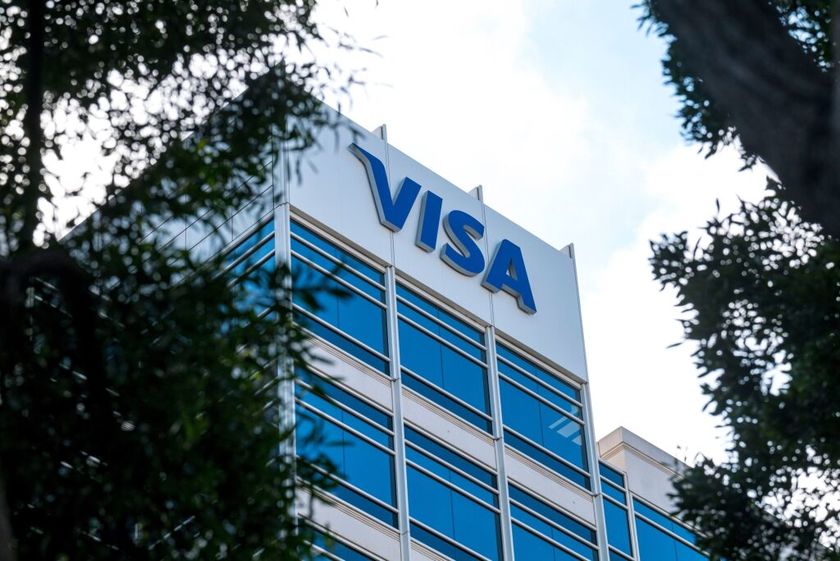While the real-time settlement schemes like FedNow attract attention from banks and payments providers in mature markets, a race to connect underserved consumers to digital wallets is taking shape in emerging markets.
U.K.-based TerraPay and Singapore-based Thunes are squaring off as two of the biggest digital wallet players building the infrastructure to connect unbanked consumers to businesses and other payment rails. Visa aligned itself with Thunes through a collaboration last year, and this month, the card network participated in a $72 million funding round to increase its participation as Thunes works to expand its global reach.
Visa has invested in extending digital payments in several markets. Visa in 2022 launched a five-year $1 billion initiative to build its operations in Africa, including work with governments, financial institutions, fintechs and merchants. That project also features connecting consumers to mobile wallets.
Days after Visa sank funds into Thunes, TerraPay announced a partnership with Kenya-based Safaricom, creating a connection between Safaricom's 30 million mobile TerraPay wallets across Bangladesh and Pakistan, with India and Nepal to be added soon. TerraPay, which launched in 2014, recently raised $100 million to expand its global payments infrastructure. Visa is also an investor in TerraPay.
With Thunes, San Francisco-based Visa and Endeavor Catalyst joined Singapore's EDBI in the $72 million Series C funding round, bringing Thunes' total funding to $202 million, deepening Visa's commitment to the fintech.
Last fall when Visa Direct integrated with Thunes' business-to-business payments network, Visa could reach an additional 1.5 billion digital wallets. Thunes already enabled funds to be sent to 78 different digital wallet providers around the globe.
Visa's expanded relationship with Thunes builds on its strategic acquisition in 2019 of Earthport, which created an account-to-account payment path for Visa Direct to convey funds without cards, said Ruben Salazar, global head of Visa Direct. Earthport's technology enables Visa to play a core role in the expanding use of digital wallets in emerging markets where most consumers don't have payment cards, he explained.
The key problem that Visa wants to solve through partners like Thunes is connecting disparate digital wallets in fragmented markets, Salazar said.
"Visa doesn't have full coverage in many emerging markets, and as we think about how our network will operate going forward, we want to take our existing reach and connections to millions more mobile wallets," he said.
Unbanked populations in fast-developing regions represent a huge untapped market for financial services. Although it may take years to become ubiquitous there, Visa wants to be a key player in commerce and remittances powered by emerging digital wallet networks.
There are 800 million people around the world receiving remittances, and while the originators may be sending money from an area with high bank penetration, the recipients generally don't have a convenient way to receive money. And as this evolves, it's moving toward digital money instead of cash, Salazar said.
Digital wallets are increasingly popular in emerging markets–especially for retail payments, but they typically operate as closed-loop systems with the wallet provider working to build out their network of consumers and merchants using QR codes, said Zilvinas Bareisis, a senior analyst with Celent.
"As these wallet ecosystems proliferate and grow, interconnecting them–both domestically and cross-border–allows people to transact and send money from one wallet to another. By investing in Thunes and tapping into their network of wallets, Visa is continuing to execute its own 'network of networks' strategy," Bareisis said.
Thunes, established in 2016, is simultaneously establishing partnerships with other wallets and providers. The firm recently opened its first office in Beijing to support a new partnership with Tencent for receiving remittances via Tencent's WeChat digital wallet. Thunes also recently partnered with Saudi Arabia-based Enjaz Payment Services, which powers instant cross-border remittances.
Latin America is the next big frontier for Thunes' expansion, said Peter De Caluwe, Thunes, CEO.
"After building payments infrastructure to connect wallets in Europe, Africa, Asia, the Middle East and the U.S., we're approaching Latin America by starting at the ground level and getting central bank approvals to reach businesses in each local market," De Caluwe said.
Harnessing a team of 420 developers, engineers and marketers representing 60 nationalities in 40 countries, De Caluwe said Thunes will incorporate Visa Direct into the B2B connections it's building in new markets.
Although Thunes supports mobile remittance transfers, cross-border remittances only account for about 20% of the company's volume, De Caluwe said.
"Most of the local and international transactions we enable are B2B, where a small business or a corporation is paying a consumer or a supplier, and the network we're building then connects to different digital wallets in various markets," he said.











 All while Pfizer—a company with a $2.3 billion criminal fine for fraudulent marketing, bribery, and kickbacks—was given blanket immunity from liability and billions in taxpayer dollars to produce a vaccine in record time with no long-term safety data.
All while Pfizer—a company with a $2.3 billion criminal fine for fraudulent marketing, bribery, and kickbacks—was given blanket immunity from liability and billions in taxpayer dollars to produce a vaccine in record time with no long-term safety data.
























